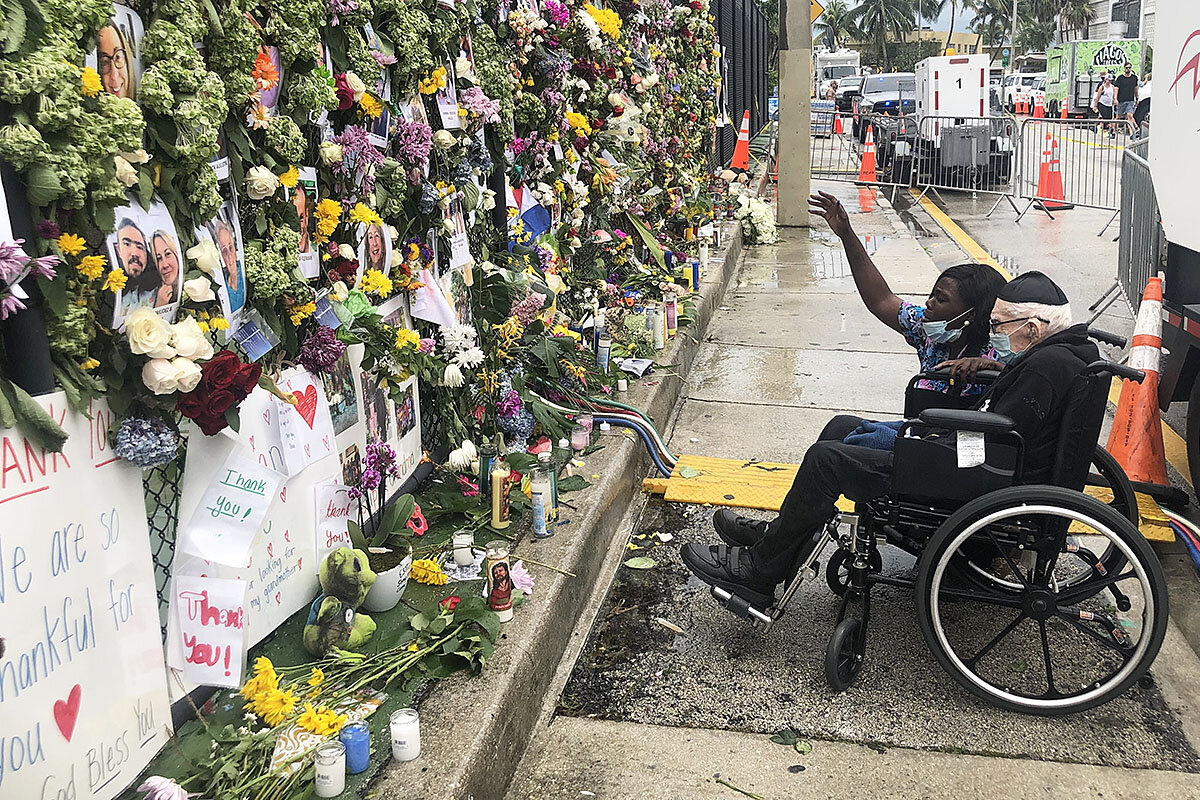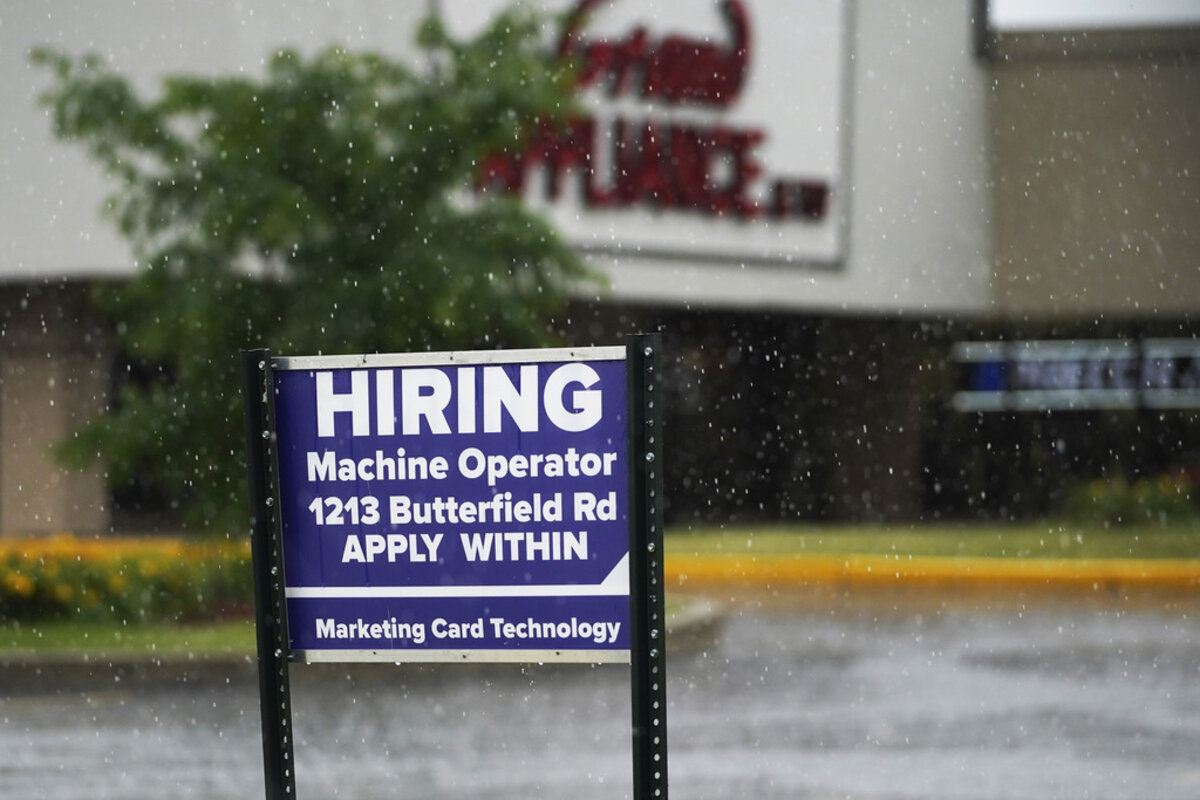The Surfside building collapse has brought people from across Florida and beyond to help, to mourn, and to support those grieving and in need.
Monitor Daily Podcast
- Follow us:
- Apple Podcasts
- Spotify
- RSS Feed
- Download
 Linda Feldmann
Linda Feldmann
President Joe Biden visited South Florida yesterday for the most somber of reasons – to thank first responders and meet with grieving families after last week’s collapse of a condo building in the town of Surfside.
The trip wasn’t political, but politics loomed nonetheless. Florida Gov. Ron DeSantis, a Trump acolyte, has often been harshly critical of the Biden administration. There’s even speculation that President Biden and Governor DeSantis, a rising GOP star, could face each other on the ballot in 2024. Their interaction Thursday could easily have been rife with partisan tension.
So it was all the more striking to see, instead, a forthright display of common purpose and bipartisan unity. At a briefing, the two seated side by side, Mr. DeSantis praised the federal response and Mr. Biden in particular for being “very supportive.”
“You guys have not only been supportive at the federal level, but we’ve had no bureaucracy,” Mr. DeSantis said.
“I promise you,” the president replied, “there will be none.”
Putting his hand on Mr. DeSantis’ arm, Mr. Biden said the governor and Surfside mayor have been “completely open with me,” and that he’d boost federal coverage of Florida’s emergency response costs to 100%.
The Democratic mayor of Miami-Dade County, Daniella Levine Cava, also praised the Republican governor. “You’ve been a steady, calming, reassuring, but forceful voice every step of the way,” she said. “And it’s been a pleasure to partner with you, truly.”
Heading into July Fourth weekend, the scene was a welcome reminder that it’s possible, still, to be “united” states.










